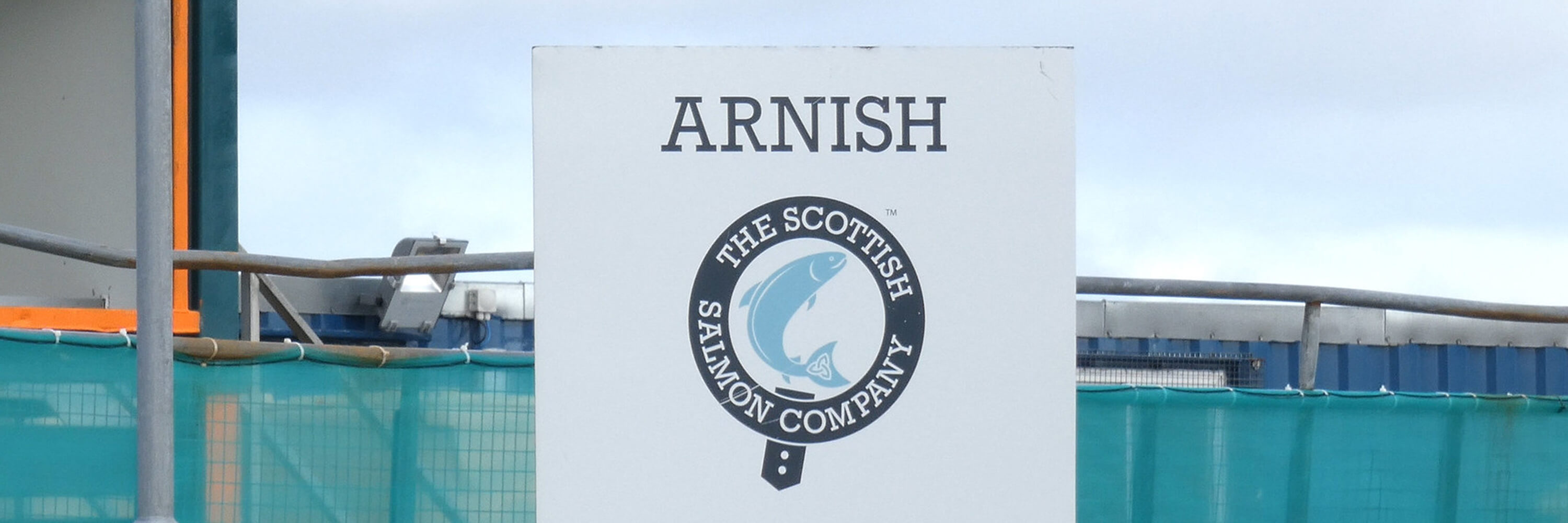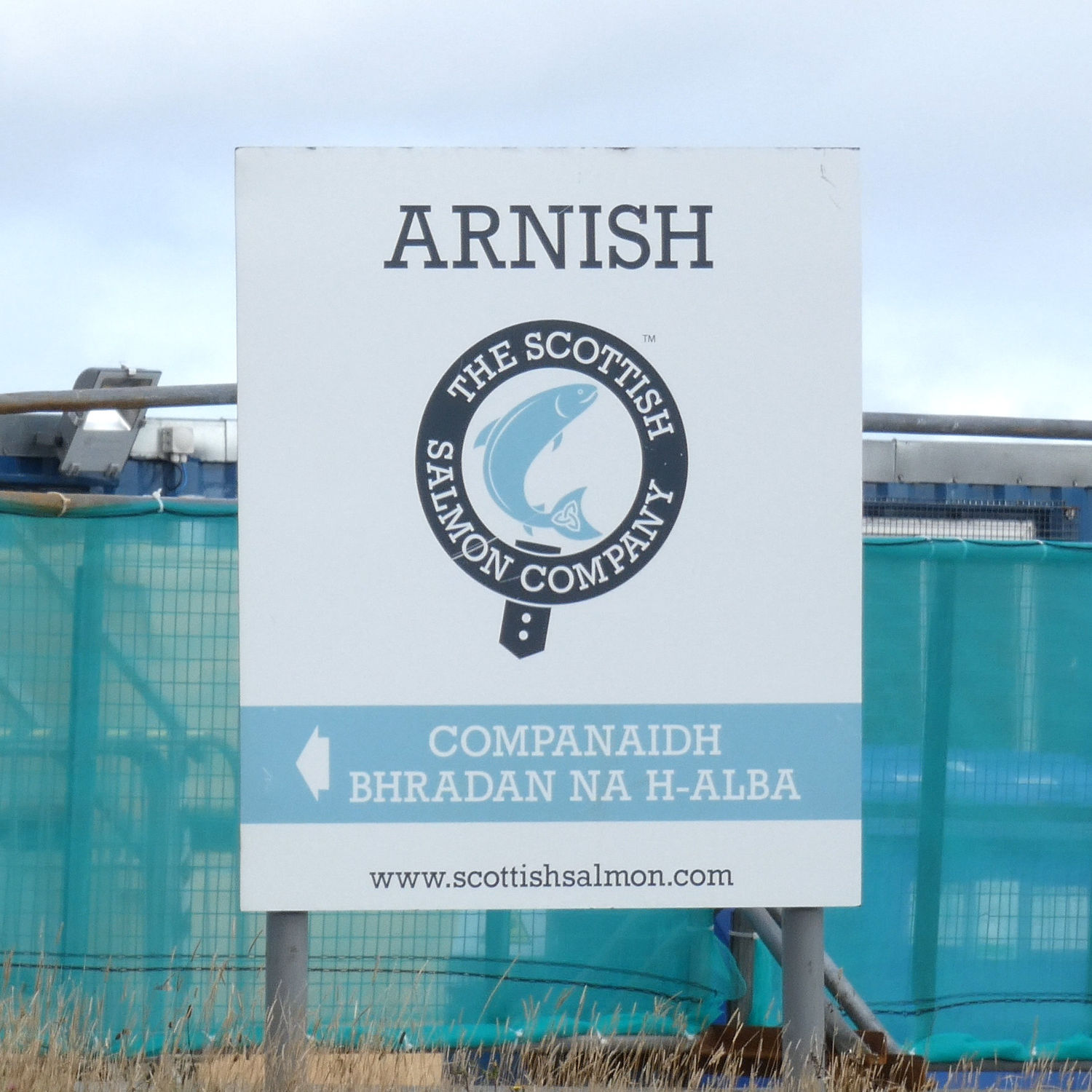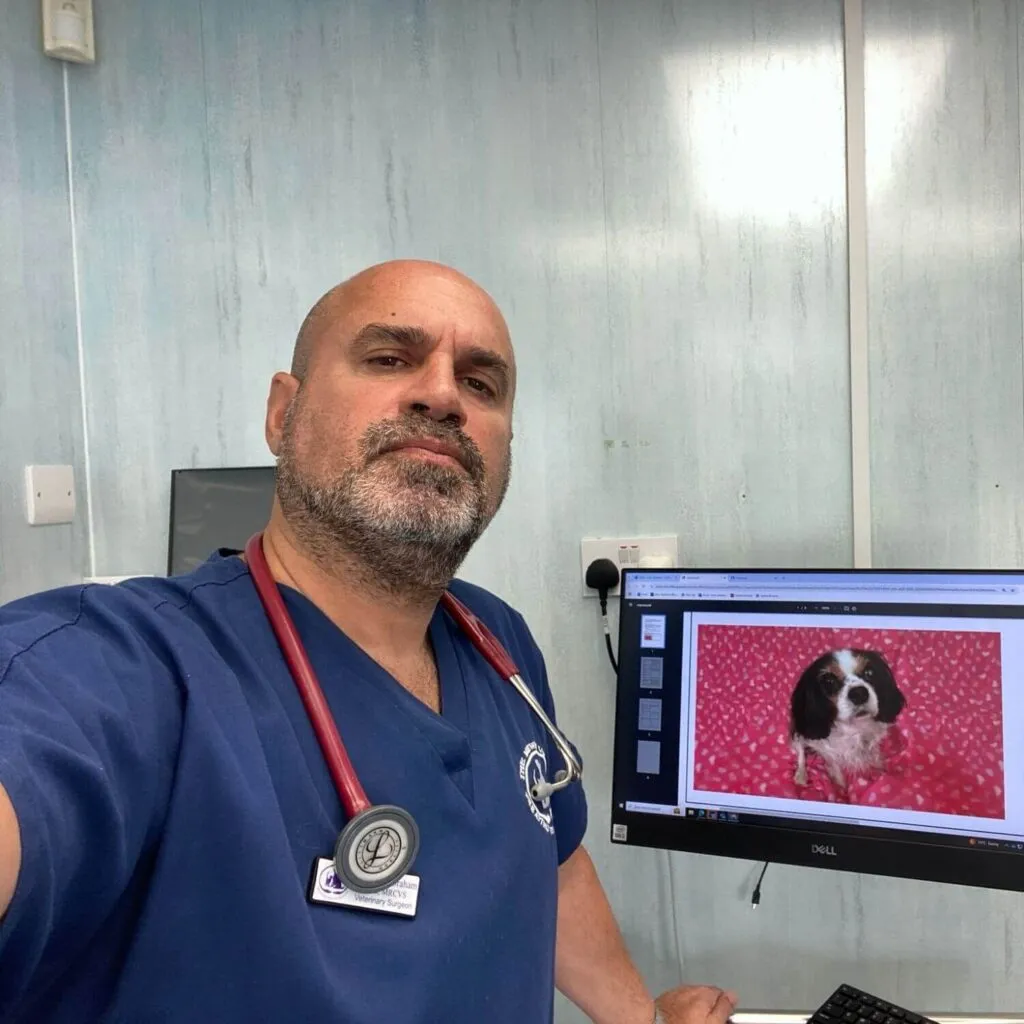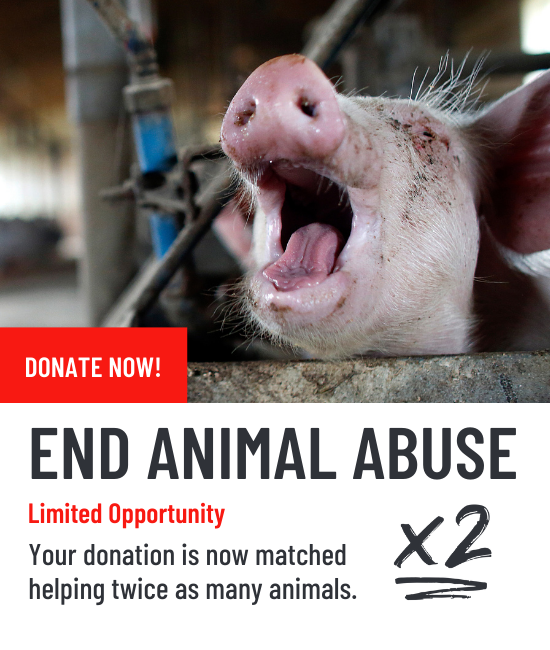

Who Is Behind The Meat Industry? Four Companies You Should Know About
Today, the vast majority of farmed animals in the UK spend their short lives confined on factory farms.
This is the result of a decades-long process in which companies in the meat, dairy and egg industries have tried to get more and more out of animals at lower and lower costs.
Every inch, every second and every pound that can be saved means larger profits.
In 1975, a cow used for her milk used to produce 4,100 litres of milk per year. After years of selective breeding, a cow will now produce double that amount: 8,200 litres of milk per year.
This increased volume of milk and the poor conditions on dairy farms come with painful consequences for the cows. An estimated 25% of cows used for their milk in the UK suffer from lameness. Up to 50% of cows suffer from mastitis, a painful infection of the udder.
Chickens also suffer a host of debilitating issues as a result of selective breeding. In 1957, a chicken raised on a farm for 7-8 weeks would reach around 0.9kg in weight. Today, that same chicken will reach 2.2kg in about 5 weeks, over double the weight in significantly less time.
This has painful consequences for chickens who suffer from heart attacks, lameness, and breathing difficulties as a result. Many simply cannot move under their body weight and die from starvation or thirst on the farm because they can’t reach food or water. Those that survive are slaughtered at just 5-6 weeks old.
Wherever you look within the farming industry today, you will see animals suffering at the hands of these industries.
Pigs are confined in metal crates so tight that they cannot turn around. Calves are torn from their mothers hours after birth. Fish are slaughtered at the rate of hundreds per minute, sometimes while still conscious. Chickens, packed in sheds by the tens of thousands, are given the space of an A4 piece of paper per bird to live in.
All of this is happening because of the choices of an industries which are willing to maximise profits at an enormous cost to animals.
The public is becoming increasingly aware of factory farming and the damage it is doing to animals, but the companies that are directly benefiting from it remain largely anonymous.
Most people know the names of giant companies in other industries, but how many people can name the largest meat companies?
Here’s some of the work Animal Equality has done to uncover and challenge some of the largest meat companies operating in the UK today.
1. Moy Park
In 2020, Animal Equality investigated twelve chicken farms operated by the major meat company, Moy Park, which is responsible for raising and slaughtering an estimated 300 million chickens every year in the UK.
With the UK slaughtering an estimated 1.1 billion chickens every year, Moy Park is one of the biggest chicken producers in the UK.
Secret filming by Animal Equality exposed hundreds of fragile chicks suffering agonising deaths as workers crushed the necks of those deemed too weak or too small to be profitable. On some of the farms, smaller birds were deprived of water as the drinkers were routinely raised to heights they were unable to reach.
In 2020, Moy Park reported revenues of over £1.4 billion.
2. Avara
In 2019, Animal Equality investigated three farms producing chickens for Avara (previously Faccenda) which is another of the UK’s largest chicken producers.
Animal Equality’s footage found workers purposefully stepping on and kicking chickens, and breaking their necks and leaving them to convulse amidst the flock. The footage also showed dead chickens being left to rot among live chickens. All three farms were certified by Red Tractor.
In 2020, Avara reported revenues of over £1.2 billion. Avara is part-owned by the US meat company, Cargill, which is one of the biggest meat companies in the world.
3. Pilgrim’s Pride
In 2021, Animal Equality released disturbing footage of animal suffering filmed at an intensive pig farm linked to the meat company Pilgrim’s Pride.
Pigs raised on the ‘quality assured’ farm were found to be slaughtered at a nearby abattoir contracted by Pilgrim’s Pride, a large meat company which supplies Lidl, Tesco and Marks & Spencer amongst other major restaurants and retailers.
Animal Equality’s investigator filmed very troubling scenes as well as a number of serious legal violations on the farm, including piglets being hammered to death.
In 2020, Pilgrim’s Pride reported revenues of over £1.3 billion. Moy Park and Pilgrim’s Pride are both owned by the same parent company, JBS, which is one of the largest meat companies in the world.
4. The Scottish Salmon Company
In 2021, Animal Equality released undercover footage from a slaughter facility operated by The Scottish Salmon Company, one of the largest salmon producers in the UK.
As well as being a known supplier of major supermarkets Waitrose and Co-op, the Scottish Salmon Company exports its products to over 20 countries around the world.
In 2020, the Scottish Salmon Company reported a turnover of over £180 million.
Animal Equality is committed to challenging the suffering caused by the meat, dairy and egg industries around the world.
In 2019 in the US, Animal Equality filed a lawsuit for false advertising against one of the largest meat companies in the world, Tyson.
The lawsuit alleges that Tyson makes false marketing and advertising representations intended to make consumers think that Tyson chicken products are produced in an environmentally responsible way and that Tyson birds are healthy and treated humanely, when in fact Tyson’s practices include routine use of anti-parasitic drugs and crowding of birds by the tens of thousands into massive industrial warehouses with no access to the outdoors.
Animal Equality has also filed a complaint for misleading advertising against the meat company Zema S.R.L, which operates in Italy.
The complaint followed an Animal Equality investigation which uncovered mistreatment of pigs and systematic violations of animal welfare laws in a slaughterhouse owned by the company.
Investigations play a vital role in providing the evidence needed to challenge these industries.
See our article ‘15 Years of Investigating Animal Cruelty’ below.
Recommended





